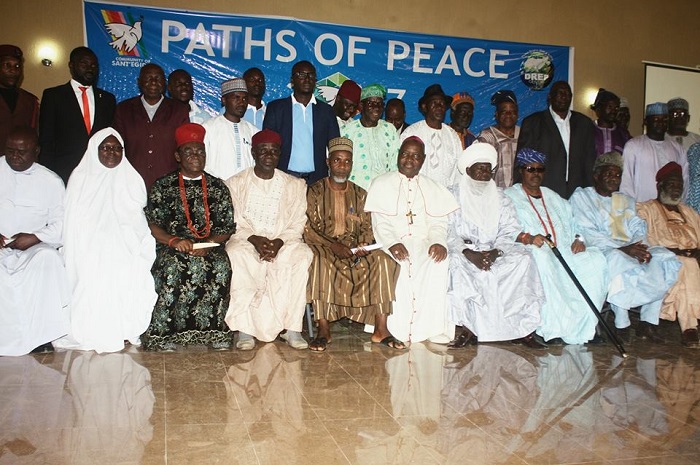
Nigeria’s Christian and Muslim leaders have called for peace following a recent surge of violence in the central state of Plateau.
On 14 September, three people lost their lives after an eruption of inter-religious violence in the city of Jos, which followed the massacre of about 20 Christians by Fulani herdsmen.
The two incidents raised fears that a recent period of peace in Plateau State, which has previously suffered from deadly sectarian violence, is still very fragile, and one that could collapse with a little provocation.
“Without peace, no country is able to grow and develop,” said Mgr Ignatius Kaigama, the Archbishop of Jos and President of the Catholic Episcopal Conference of Nigeria, in his address during a meeting in Jos on 21 September, jointly organised by the Community of Sant’Egidio and the Centre for Development, Reconciliation and Peace (DREP).
“Religions are a force of encounter and unity, not a tool of disintegration and destruction,” he added.
The Emir of Wase, also in Plateau, Alhajji Muhammadu Sambo Haruna, called on Nigerians to condemn all forms of violence. This message was reiterated by Mallam Salis Basin, president of the Muslim youth organisation Jamatu Nasiru Islam, who called on everyone, especially the youngest, to learn how to live in peace, even with different political, religious and personal preferences.
The Jos meeting followed Sant’Egidio’s ‘Paths of Peace’ meeting in Germany, during which it launched an ‘Appeal of Peace’.
“As representatives of the world religions, we wish to look beyond our horizons, and build a new movement of dialogue,” read Sant’Egidio’s appeal. “Encounter and dialogue disarm the violent and stop them, for we know that war is never holy, and whoever kills in God’s name has no place among religions, nor among people.
“We firmly say our ‘no’ to terrorism: in the past months it has harmed too many lands and killed too many innocent people, in the North and in the South of the world.
“We commit ourselves to engage in removing the root causes of many conflicts: lust for power and money, the arms trade, fanaticism, nationalism. Since the end of the Cold War, again the risk of a nuclear conflict has resurfaced in the Far East in alarming terms. What can believers do? Perhaps more than they hope and think.”